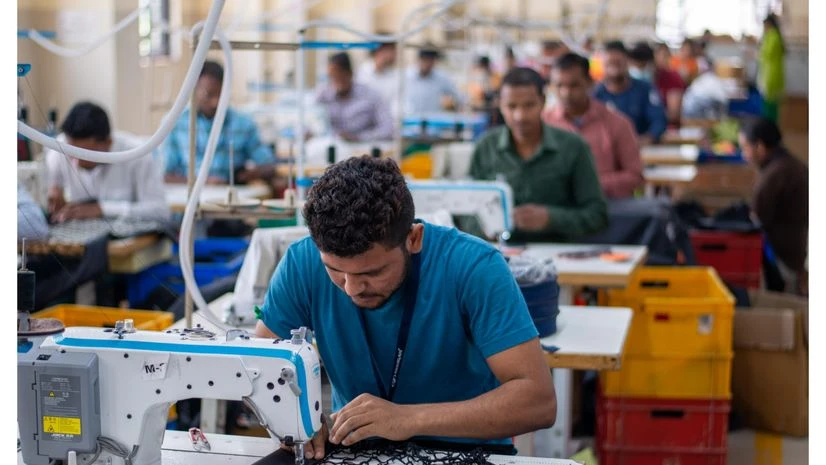In a bid to give a boost to India's robust textile and apparel (T&A) industry, the government is considering a series of measures, including tax incentives like the removal or reduction of basic customs duty on imported organic cotton as well as long-staple cotton. Currently, these products attract a 5 per cent basic customs duty and an additional 5 per cent duty.
The proposed move assumes significance as India is one of the largest T&A exporters in the world. The share of T&A in India's total merchandise exports stands at 10-11 per cent, with a commendable 5 per cent share in global trade. Additionally, it is one of the largest employment generators, providing jobs to more than 45 million people, including 60 per cent women.
Therefore, any decision by the government in its upcoming Budget will have a larger impact on one of the mainstays of the economy. Also, a higher allocation to the micro, small, and medium enterprises (MSME) sector will have a positive impact on the textile sector, as 80 per cent of its manufacturers are small players.
With an average consumption of around 31.6 million bales per year, cotton contributes to around 60 per cent of the raw material consumption in the country. If the duty of 11 per cent on imported cotton is waived, the cotton price could stabilise according to the international market price, providing relief to the industry.
Hence, any decision in this regard will have positive implications for the industry, which is battered by global geopolitical uncertainties like the Russia-Ukraine war, the Red Sea crisis, and the Israel-Hamas conflict, low demand from the US and Europe due to economic crises, a dip in domestic consumption, and volatile raw material prices.
Other steps under government consideration include raising the basic customs duty on man-made fibre spun yarn flooding domestic markets from 5 per cent to 10 per cent and setting up a national textile fund to push the technological shift in the sector.
More From This Section
Budget 2024: Demands from Textile and Apparel Industry
One of the major demands being floated by the industry is a revised Production Linked Incentive (PLI 2.0) programme, after a tepid response to the scheme in the textile sector.
"We request the announcement of Production Linked Incentive (PLI) 2.0 by fixing the threshold limit for Rs. 15 crore investment, considering the Knitwear Garments MSMEs in Tiruppur Cluster. Also, we request to include cotton in the purview of PLI apart from garments made of MMF," said KM Subramanian, president of the Tiruppur Exporters Association (TEA).
The PLI scheme was launched in 2021 with the government targeting Rs 10,683 crore for five years to promote the production of man-made fibre apparel, fabrics, and products of technical textiles. The government has already indicated that the PLI scheme may be extended to the garments sector.
Other key demands by the sector include the supply of cotton, polyester, and viscose fibre at internationally competitive prices. On the other hand, downstream synthetic textile manufacturers are also seeking the government to revoke Quality Control Orders (QCOs) on man-made fibres (MMF).
"QCO suspended on fibre and yarn has so far not equitably imposed on the value-added fabric and garments. It is regressive to stop raw material imports and promote value-added imports," said Sanjay K Jain, chairman of the ICC National Committee and managing director of Delhi-based TT Ltd.
The early conclusion of free trade agreements with the UK, European Union, New Zealand, and Gulf Cooperation Council is also on the industry’s wishlist. One of the major industry demands is implementing an alternative scheme in place of the Amended Technology Up-gradation Fund Scheme (ATUFS).
"Only 15 per cent of the fund allotted was utilised and 85 per cent remained unutilised. In view of this, the announcement of an alternate scheme in place of the ATUF Scheme will go a long way in promoting the growth of the textile industry and exports," Subramanian added.

)